Erlenmeyer flasks are commonly used laboratory consumables in the cell culture process, which are widely used in microbial strain screening, large-scale fermentation experiments, large-scale expansion and culture of suspension cells and bacteria. They are ideal for suspension cell and strain culture. In addition to cell culture, Erlenmeyer Flask can also be used for media preparation, storage, and liquid transfer, and can be used with large-capacity incubator shakers to further improve experimental efficiency and flexibility. Compared with consumables such as cell factories and roller bottles, cell culture has a smaller area and is an economical cell culture tool.
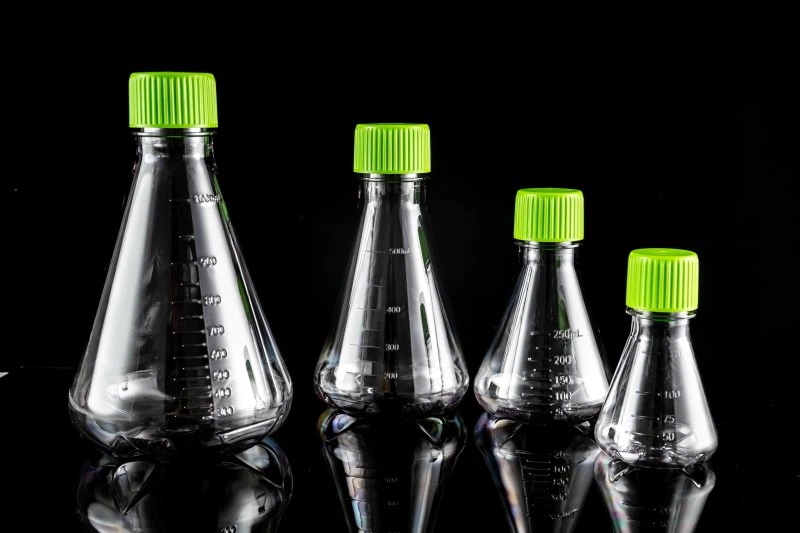
The common materials of cell culture Erlenmeyer flasks are PETG and PC, which have their own characteristics and are suitable for different experimental requirements. Here are main differences between the two:
Transparency
Erlenmeyer flasks are mainly used for the culture of suspension cells, and are also commonly used for the preparation and storage of various culture media. In the process of cell culture, it is important to observe the growth status of the cells, so the transparency of Erlenmeyer flask material is required.
PETG and PC are both highly transparent plastics, of which the light transmittance of PETG can reach 90%, which is close to the transparent effect of plexiglass, and its light transmittance is not easily affected even in PETG products with thick walls. In contrast, the light transmittance of PC is slightly lower than that of PETG, and the surface gloss is slightly inferior to that of PETG, but it still has good transparency, which is sufficient to meet most culture observation needs.
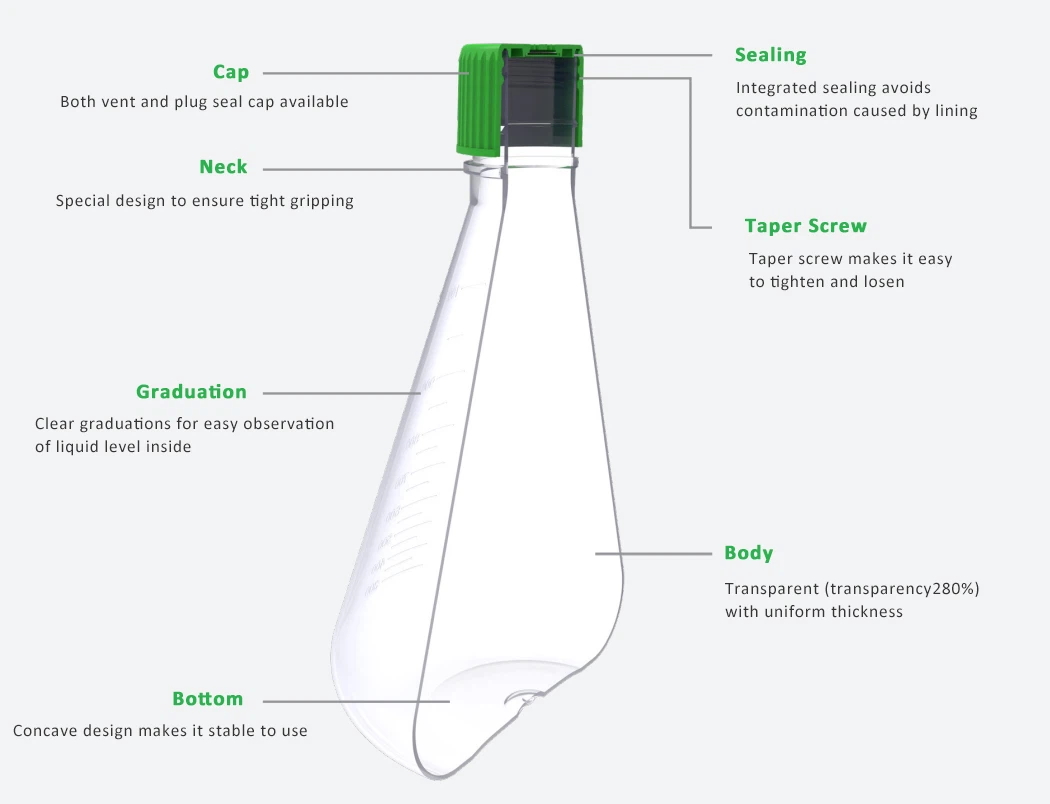
Stretch resistance
PETG has excellent toughness and tensile resistance, and its maximum tensile ratio can reach more than 180%, showing good flexibility when subjected to tensile or impact. However, the tensile properties of PETG are slightly inferior to those of PC. PC materials are stronger and stiffer, as well as more resistant to tensile and impact, making PC flasks more durable in culture environments that require higher strength or in shaker use for longer periods of time.
In general, the flexibility of PETG is suitable for medium-intensity daily culture applications, while PC is more suitable for high-intensity and repetitive experiments due to its excellent stiffness and tensile properties.
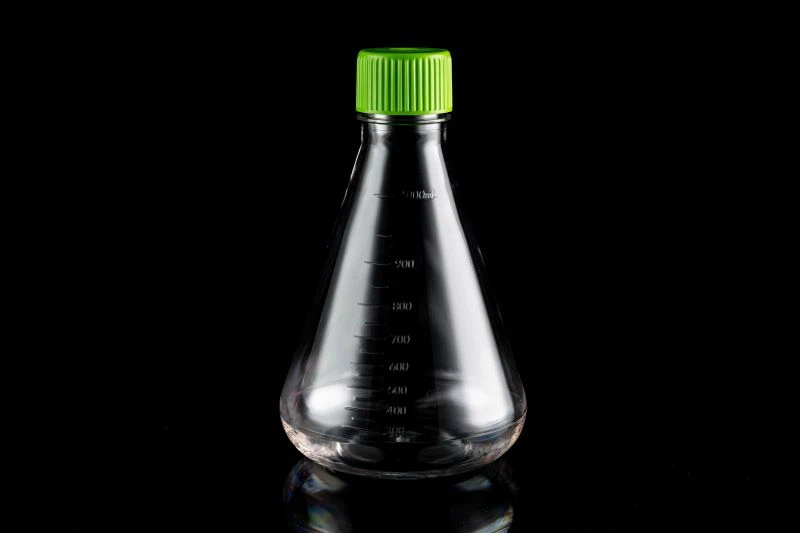
Temperature resistance
PETG material has excellent toughness and impact strength, but it is easy to deform or damage under high temperature and high pressure conditions. The PC material has higher strength, which can withstand high temperature or high pressure environment of 121°C and 15PSI for 20 minutes without deformation.
Low temperature: PETG exhibits excellent stability in low temperature environment, with almost no impact on physical and mechanical properties, and is suitable for normal use in environments as low as -30°C or even as low as -60°C. However, its heat resistance is limited and typically does not exceed 75°C.
High temperatures: PC is more heat-resistant, up to 130°C or more, making it more suitable for applications that require autoclaving.
Injection Temperature
PETG: The processing temperature is usually 215°C~235°C, which is suitable for medium and low temperature molding.
PC: High processing temperature, usually 280°C or above, suitable for high temperature applications.
In summary, PETG is suitable for cultivation needs at low temperature and room temperature, while PC is more suitable for experimental applications in high temperature sterilization and high temperature resistant environments.
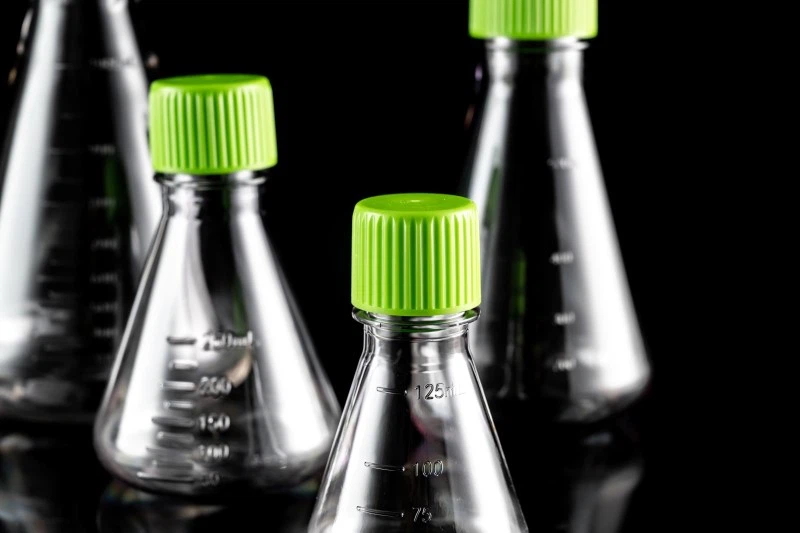
Chemical resistance
PETG: It is well resistant to a wide range of chemicals and does not react easily with culture media, making it ideal for cell cultures where high purity is required. It exhibits strong stability when dealing with acids, bases, and a variety of organic solvents, making it an ideal choice in laboratories.
PC: Chemical resistance is relatively low, and certain chemical agents may affect the PC material, resulting in degraded performance or discoloration. Therefore, PC is suitable for use in milder culture environments, especially when avoiding contact with strong acids, bases and certain organic solvents, to ensure its long-term stability.
Cost
PETG: Relatively low-cost, popular for its affordability, PETG is ideal for high-volume and single-use applications. This makes PETG ideal for high-throughput screening or incubation in the lab, reducing overall experimental costs.
PC: Although slightly more expensive, it is more suitable for experimental applications that require long-term use due to its durability and reusability. PC shake flasks are able to maintain their performance in situations where autoclaving or trial and error is required, so using a PC may be more cost-effective in the long run.
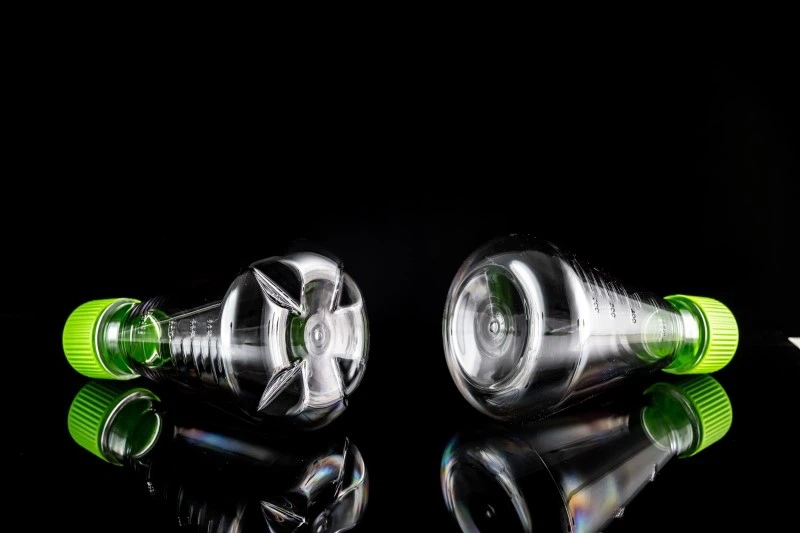
In summary, the choice of PETG or PC should take into account the specific requirements of the experiment, budget, and frequency of use to achieve the best cost-benefit balance.
From application point of view, whether it is a PETG flask or a PC flask, its characteristics can basically meet the needs of most cell cultures on the market. When purchasing, you can choose the right material according to your own experimental needs and specific applications. For example, if an economical and single-use solution is required, a PETG flask may be a better choice, while a PC flask may be a better choice if the experiment requires autoclavability or long-term repeated use. Making an informed choice based on your experimental requirements will help improve the efficiency and reliability of your experiments.

+86 21 51096910

sales@welsobio.com
marketing@welsobio.com

1-1009, National Industrial Design Park, No. 599 Jianzhu Road, Binhu, Wuxi , Jiangsu, China, 214062

Head Office: No. 439 Jinglian Road, Minhang District, Shanghai,China, 201108